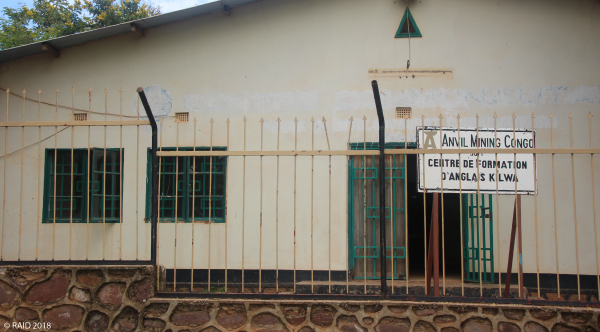Summary
Alfredo Lagos del Campo was fired from his job on July 1, 1989. Mr. Lagos del Campo had previously been a union leader but, at the time of his dismissal, he was the President of the Electoral Committee, an elected representative of the company’s Industrial Community (a type of employee organization in Peru created through law). Mr. Lagos del Campo gave an interview for a magazine in his capacity as President of the Electoral Committee, stating he had publicly denounced actions by his employer who he believed was pressuring workers using extortion and coercive tactics. Mr. Lagos del Campo was fired shortly after the interview in response to his statements.
Mr. Lagos del Campo filed a claim in the Labor Court in Lima, claiming that his dismissal was motivated by his work with the Industrial Community rather than insubordination, and therefore such action violated his right to freedom of expression, was an illegal interference with union and labor activity, and directly violated his right to work. The Labor Court agreed that his dismissal was illegal, but the Court of Appeals reversed the decision and stated that freedom of expression does not include the ability to denigrate the honor and dignity of an employer. Mr. Lagos del Campo spent the next several decades trying to appeal in a variety of forums, though for a time the courts were nonfunctional due to unrest.
Finally, Mr. Lagos del Campo was represented before the Inter-American Commission for Human Rights (IACHR) by the Pro Human Rights Association (APRODEH). The IACHR submitted the case to the Inter-American Court of Human Rights after the State denied having violated Mr. Lagos del Campo’s rights. The State argued that Mr. Lagos del Campo was not a union representative at the time of his dismissal, and therefore his rights to freedom of expression and association did not deserve heightened protections. The Court found that Mr. Lagos del Campo clearly acted in a union representative capacity, and his statements were made in the context of a labor dispute regarding labor conditions. By not protecting Mr. Lagos del Campos’ rights, the State impacted his ability to represent workers, and deprived workers of their representative. The State thus violated Mr. Lagos del Campo’s rights to freedom of expression and association under Articles 8.2 (right to a fair trial), 13.2 (freedom of thought and expression), 16 (freedom of association), and 26 (economic, social and cultural rights) of the American Convention on Human Rights, in relation to Article 1.1 (obligation to respect rights).
Mr. Lagos del Campo’s arbitrary and unjustified firing also deprived him of his right to work and to job security under Article 26, in relation to Articles 1.1, 13, 8, and 16. The Court made clear that the State obligations with respect to the right to work included the provision of effective legal mechanisms through which worker claims of unjustified firings in the private sector could be brought and, if credited, remedied through reinstatement and other measures. The Court stressed that the right to job security did not mean that a worker could never be fired. Rather, it meant that workers had a right to know the grounds for their firing and to effective legal protection in the event employer-claimed grounds were arbitrary or contrary to law, as was the case of Mr. Lagos del Campo.
The Peruvian Constitution recognizes both the right to work and the right to job security. As the appellate courts of Peru would not evaluate Mr. Lagos del Campo’s claims with respect to either, and no other court would hear them, the State likewise violated Mr. Lagos del Campo’s right to a fair trial and judicial protection, violating Articles 8.1 and 25.1 (right to judicial protection) of the Convention in relation to Article 1.1.
The Court also reiterated the existing interdependence and indivisibility between civil and political rights, and economic, social and cultural rights, stating that they must be understood comprehensively and in a manner that recognizes that there is no hierarchy within the rights framework.
The Court ordered the State to publish the decision on its website and in a publication with wide circulation. It awarded Mr. Lagos del Campo $28,000 USD for loss of income, and $30,000 for loss of access to retirement and a pension. Additionally, the Court awarded $20,000 for “intangible injury”, since Mr. Lagos del Campo has been diagnosed with Post Traumatic Stress Disorder, and $20,000 for legal costs.

